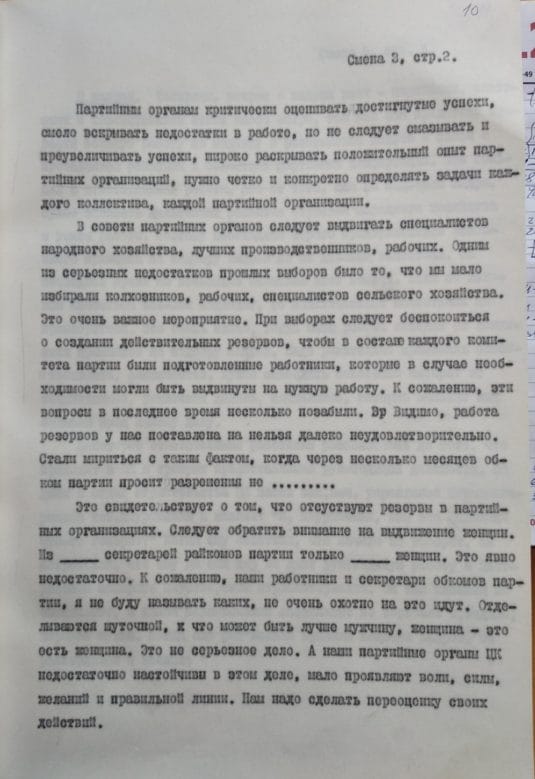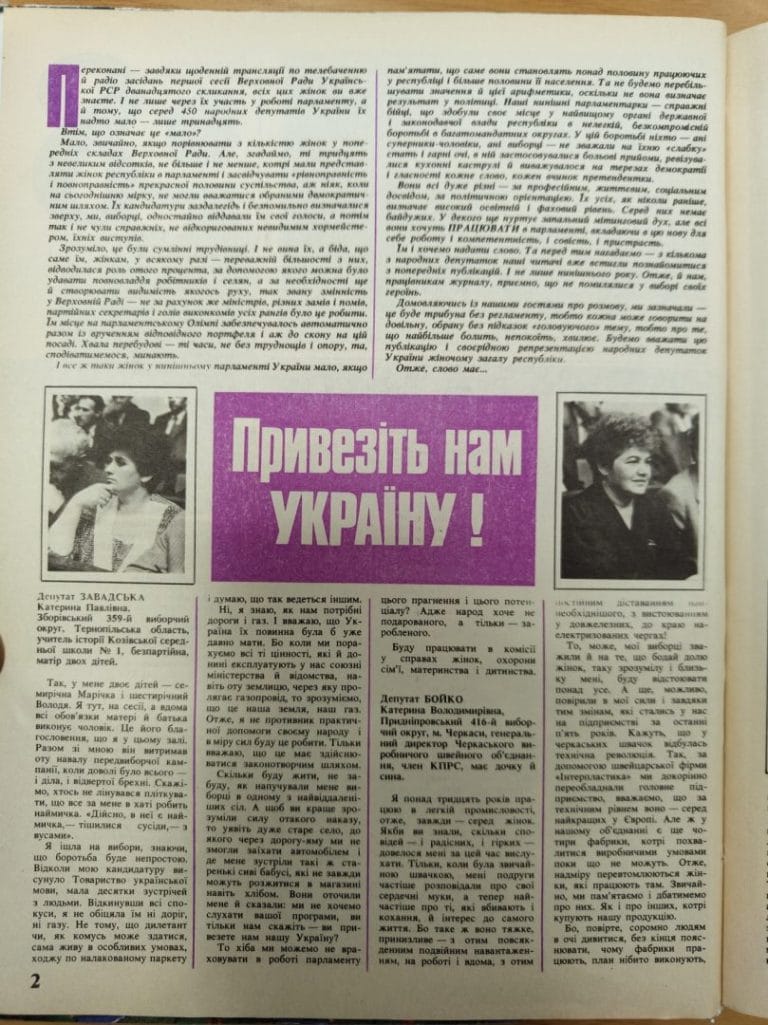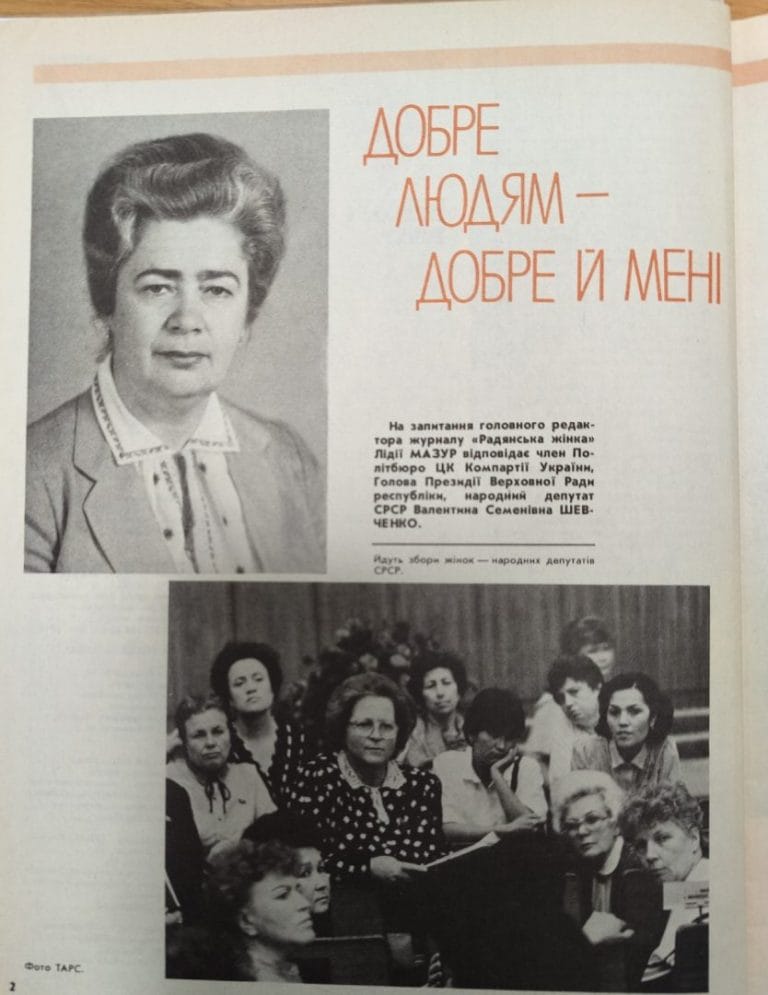Transcript of a meeting of first secretaries of oblast party committees, heads of republican ministries and departments, November 17, 1965. Excerpt
Work shift 3, p. 2.
Party bodies should critically assess the successes achieved, boldly expose shortcomings in their work, and avoid both glossing over and exaggerating progress. They must widely publicize the positive experiences of party organizations and clearly and concretely define the responsibilities of each collective and each party organization.
Specialists in the national economy, top production workers, and laborers should be nominated to serve on the councils of party bodies. One serious shortcoming in the previous elections was the low number of collective farmers, workers, and agricultural specialists elected. This is a critically important issue. During elections, we must ensure the creation of effective reserves, so that every party committee has a pool of trained personnel ready to be nominated for necessary positions. Unfortunately, this matter has been somewhat neglected in recent times. Apparently, the work on forming such reserves is far from satisfactory. We have grown accustomed to the fact that within a few months, an oblast party committee will request permission not to………
This signals that there are no [sic] personnel reserves within party organizations. Special attention must be given to the nomination of women. Of the ____ secretaries of the district party committees, only ____ are women. This is clearly insufficient. Regrettably, some of our party workers and secretaries of oblast committees—whom I will not name—are not particularly inclined to support this. They brush it off with a joke, saying: ‘What could be better than a man? A woman is just a woman. This is not a serious approach. Our Central Committee’s party bodies have not shown sufficient persistence in this matter. They have lacked will, strength, motivation, and a proper sense of direction. We must reassess our stance and actions.





The meeting of the heads of regional party committees and the leaders of republican executive bodies, held on November 17, 1965, was dedicated to organizational and party work within the CPU (Communist Party of Ukraine) in preparation for the “worthy reception of the 23rd Congress of the CPSU,” scheduled for March 1966. Attendees heard reports from the head of the Ukrainian party organization, Petro Shelest, as well as from nine regional CPU committees.
In his speech, an excerpt of which is published below, Petro Shelest addressed preparations for what he called a “momentous event in our lives,” a “landmark date in the life of our Party and our people – the 23rd Congress of the Communist Party of the Soviet Union.” He urged serious and meaningful preparation for the Congress—summarizing the results of the previous stage of work, identifying problems, and outlining future tasks. The head of the CPU emphasized that preparations should be carried out without pomp, noise, arrogance, or boasting.
Touching upon the personnel issue, Shelest mentioned the need to promote more women to leadership positions. Among the problems in cadre policy, he pointed to the insufficient number of women among the leadership of district party committees, placing the blame on regional party committees.
According to a statistical report on party cadre composition and turnover as of January 20, 1965, out of 1,137 district party committee secretaries, only 99 were women (or 8.7%). This included just 5 women (1.3%) among the 379 first secretaries, 9 women (2.3%) among the 379 second secretaries, and 85 women (22.4%) among the remaining 379 secretaries (Central State Archive of Public Associations and Ukrainian Studies, 1/67/672:1,2,28). A year later, there were 6 women serving as first secretaries, 11 as second secretaries, and the number of women in other secretary positions remained unchanged (Central State Archive of Public Associations and Ukrainian Studies, 1/67/687:2,28,54). Thus, the CPU leader’s call to “reassess your actions” — that is, to appoint more women — remained a purely ceremonial public declaration.